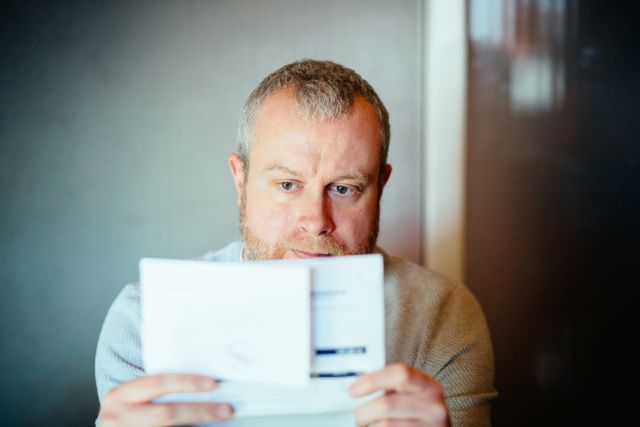Updated on September 26, 2023
In addition to many emotional and physical burdens, living with advanced prostate cancer frequently comes with financial burdens. Just as a good treatment plan for advanced prostate cancer should focus on addressing symptoms and improving quality of life, it should also consider the ways that cancer and cancer treatment can affect a person’s finances.
What is advanced prostate cancer?
Advanced prostate cancer is cancer that began in the tissues that make up the prostate gland (part of the male reproductive system) but has spread beyond that gland, either to nearby organs, structures, and lymph nodes, or to distant sites in the body.
Advanced prostate cancer is not considered curable. Treatment focuses on reducing symptoms and preventing the cancer from growing and spreading. Quality of life is another important focus of treatment. Impaired sexual function, pain, fatigue, low moods, sleep problems, urinary problems, and bowel problems are some of the things that a person may experience as a result of advanced prostate cancer or side effects from treatment.
What is financial toxicity?
Cancer is one of the most expensive medical conditions to live with, and the financial problems that a person can experience as a result of cancer are referred to as financial toxicity and financial distress.
People experiencing financial toxicity may incur medical debt, have difficulty paying bills, and struggle to pay for basic needs like food and housing. In some cases, financial toxicity can result in bankruptcy. Financial toxicity is more likely to affect younger adults, people of color, people with lower income, and people who are uninsured or underinsured.
Advanced cancer increases the risk of financial toxicity
For a number of different reasons, the risk of financial toxicity is greater when a person is living with advanced cancer:
- Treating advanced cancers is typically a longer process. In the case of advanced prostate cancer, treatment typically continues for the rest of a person’s life.
- Advanced cancers may require a greater number of tests and exams. This includes tests to determine where the cancer has spread to, as well as tests to monitor how the cancer is responding to treatment.
- Advanced cancers may also involve more extensive treatment. For example, advanced prostate cancer that has spread to the bones may require additional types of treatment and working with additional specialists.
- Having cancer can require a person to take time away from work, reducing household income. Advanced cancer may require more time away from work due to symptoms and the demands of treatment.
Financial toxicity can also impact cancer treatment. Some people may delay or discontinue treatment because of the cost. Financial toxicity is associated with greater fatigue, greater stress, and an overall lower quality of life among people with cancer.
Preventing and coping with financial toxicity
If you are concerned about the cost of treating advanced prostate cancer or are experiencing financial hardship as a result of living with advanced prostate cancer, know that there are people and organizations that can help you.
- Start by talking to your healthcare team. Be honest about your concerns about the cost of treatment or the hardships that you are experiencing. Your healthcare providers may be able to offer guidance or point you toward someone who can help.
- Work with an oncology social worker. Oncology social workers are licensed professionals who help people and families navigate the experience of living with cancer. This includes guiding you toward programs that can help, such as state and federal assistance programs and manufacturer discounts on therapies or medications.
- Check with advocacy organizations. Some organizations provide financial assistance or guidance to people living with cancer. Visit the website of the Cancer Financial Assistance Coalition (cancerfac.org) to search for local organizations that may be able to help.
- Crowd source in a support group. Support groups offer the chance to connect with other people living with prostate cancer and can be a great source of emotional and social support. Support groups can also be a place to exchange practical support—such as information on coping with financial stress.






